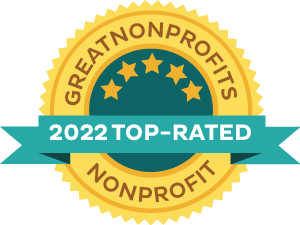WGEF Program Director Bukenya Muusa Reflects on the Importance of Women in Agriculture
Posted on March 5, 2020 by wgefund

Historically, women are the food producers in Africa, why is this and how have their roles in farming and agro-business changed over the last 10 years?
Women have been the backbone of the rural economy in Uganda, like many other developing countries, but especially in east Africa. Women make up of 60-80% of the Uganda’s farmers. Without a proper source of income generation, women struggle to meet cash needs for themselves and their families, including medical expenses, household items, and school fees. small-scale agriculture provides enough food to ensure household food security and a basic income. Over the last 10 years women have broadened their involvement in agriculture. Female-headed households in rural areas has increased as more men have migrated to urban center, towns and cities. This new shift has placed women to be the link between the farm, table and market. activities include producing agricultural crops, tending animals, processing and preparing food, working for wages in agricultural farms, collecting fuel and water, engaging in trade and marketing, caring for family members and maintaining their homes.
In recent years, the landscape of rural Uganda has seen a notable shift as more women head households due to male migration to urban centers. This evolution positions women as vital links in the agricultural supply chain, bridging the gap between farm production, local markets, and household consumption. For women seeking to expand their impact beyond traditional farming roles, opportunities in agribusiness recruitment offer avenues to leverage their expertise in agricultural production, food processing, and market engagement. These roles not only empower women economically but also recognize their integral role in sustaining rural economies and fostering community resilience through sustainable agricultural practices.
Accessibility to markets is one of the most important factors affecting rural food security positively. It links various stakeholders e.g. processors, traders, and retailers. Women being the producers and consumers at the same time, market access played a two-way function for rural households. On one hand they use the market to buy inputs or to sell farm produce while on the other hand, they use it to buy food and non-food items in order to sustain their living standards.
Women continue to be a critical part of the agricultural labour force and dominate employment in many agricultural commodity chains such as fresh fruit, vegetables, flowers, plantains and cereals, livestock, and fishing. The new jobs in agro-business industries do not employ men and women on equal terms yet, however they provide better opportunities for women than what has existed in the past.
Women still face challenges on with equal access to land, capital, assets, human capital, and other productive resources, but women will continue to move forward, creating new food economies demanding equality and access.
How do local food economies increase food security at the household level?
Local food economies increase food security, access to more diverse and fresher foods, along with increased affordability. WGEF farmers have created an entire local supply chain (that you can check out here), benefitting not only their own families, but their communities and region.
Women are the primary caregivers to families and communities, women provide food and nutrition; they are the human link between the farm table and market.
What crops do WGEF farmers grow?
WGEF clients grows many types of crops including
- Maize
- Rice,
- Cassava,
- Ground -Nuts,
- Beans and peas
- Sunflower,
- Simsim
- Aquaculture- (Fish farming)
- Poultry
How are farmers and others in agro business dealing with climate change?
Women farmers in our program have adopted practices such as planting trees, which help to restore soil fertility and create wood to be used as a fuel source; they are using catchment strips in areas where no crops are planted, in order to harvest rain water and redirect it to gardens, other soil-management practices, such as using long grasses and shrubs to cover and protect soil and crops from erosion normally caused by heavy rainfall.
WGEF will continue to provide critical information and work together with our members to adapt and evolve as the climate shifts and changes.
Category: From the Field, Front Slideshow Tags:
 Women's Global Empowerment Fund
Women's Global Empowerment Fund